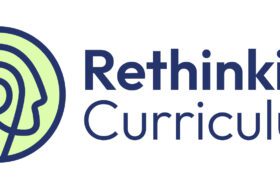Hi. My name is Dan Lyndon-Cohen and I am the Lead Practitioner for Humanities at Park View School in Tottenham and a Fellow of the school’s history project.
I’m going to spend a few minutes talking to you about how we have diversified – and are in the process of decolonising – our curriculum in history. But first I want to define the difference between the two and then give some examples of how we have used both approaches in our teaching.
So first of all, when we talk about diversifying the curriculum we’re talking about, in the simplest terms, widening the representation within the history classroom, whether that is of people of colour, of women, of working class stories, of LGBT communities, people with disabilities – essentially, those who’ve tended to be left out of the traditional narratives.
When we talk about decolonising the curriculum, this is a substantial and significant step outside of just diversifying the curriculum because what we’re talking about here is breaking out from the narrow constraints of a Eurocentric approach to history. And this is really a paradigm shift and a very substantial change. And it’s a fundamental way in which we can tackle issues, particularly around race and racism.
I want to give you a couple of examples of how we’ve diversified our curriculum. First of all, it’s fundamentally important to us that we are using these different stories and different narratives as part of our mainstream curriculum. And they are totally integrated throughout. This is not a bolt-on. This is not something that we just do once a year for Back History Month, for example, or LGBT History Month – these are fully integrated into our curriculum and are taught to all of our students. So when we teach a subject like the First World War, obviously we’ll cover similar content to, I would imagine, every school in the country: we look at the causes of the war, we look at the events of the war such as the Battle of the Somme;
but we will look at many of these events through the lens of a man called Walter Tull who was the first officer in the British Army – he’s actually of mixed race background – but he was the first Black officer to give commands to white soldiers. And we look at how Tull was a pioneer in many respects. He broke the colour bar to be able to get to the rank of second lieutenant. And so we look through letters that he wrote to his brother and we use that as a way of, kind of, understanding his experience as a soldier. But we also explore where he talks about things like wanting to transferThe processes of applying learning to new situations to the British West Indies Regiment and that raises a whole range of questions about his lived experience as a Black officer.
Another example of where we diversify our curriculum is by having an entire unit of work – a sequence of eight lessons – on LGBT history, from the 1930s to the present day, covering a whole range of different issues including decriminalisation, the Gay Liberation Front, the challenges of the AIDS crisis in the 1980s, transgender rights and gender issues, through to the legalisation of civil partnerships and gay marriages. So those are a couple of ways in which we’ve diversified our curriculum.
But I also want to talk about how we’ve decolonised our curriculum. And that’s been really heavily influenced by the work of Michel-Rolph Trouillot in his book Silencing the Past (1995) and Emma Dabiri in her book Don’t Touch My Hair (2019). And we are really trying to widen our students’ understanding about the ways in which the construction of history is different depending on different cultural communities – so understanding that the chronology of history, for example, does not have to be a linear movement from one date, or one era, to another, and it can be cyclical, for example. And understanding that, as Toby Green has said, we can move away from the tyranny of the written source and look at the important oral traditions, for example. And this has really influenced our assessment practice as well. For example, we are about to embark on an amazing oral history project on the British Pakistani community, looking at cassettes which they have shared between their families back and forth and interviews with them and all of the lessons are going to be based on just those oral extracts. There will be a minimal written impact in those lessons. And they’ll be assessed by our oral history interviews that our students will undertake.
And lastly, we’re structuring our LGBT unit by looking at a digital archive that the students are going to create. And that’s going to help the students to understand those power relations that are involved in the archiving and the construction of history and help them to navigate through these established narratives and empower themselves to find new ways of understanding the past.
So that’s just a little flavour of the kind of work that we are doing at Park View, on this incredible journey that we are on, to decolonise our curriculum.





